 Petzlover
Petzlover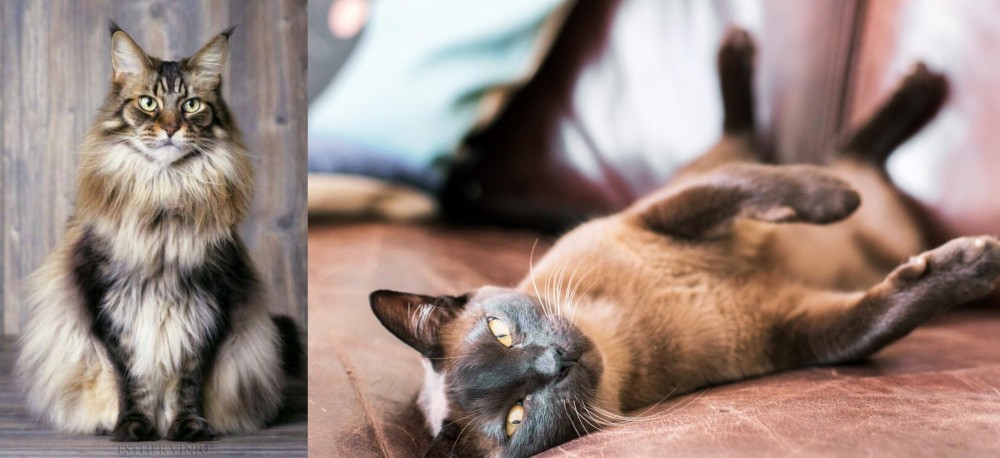 Both American Longhair and Burmese are originated from United States. Both American Longhair and Burmese are having almost same weight. Both American Longhair and Burmese has almost same life span. Both American Longhair and Burmese has same litter size. American Longhair requires Moderate Maintenance. But Burmese requires Low Maintenance
Both American Longhair and Burmese are originated from United States. Both American Longhair and Burmese are having almost same weight. Both American Longhair and Burmese has almost same life span. Both American Longhair and Burmese has same litter size. American Longhair requires Moderate Maintenance. But Burmese requires Low Maintenance
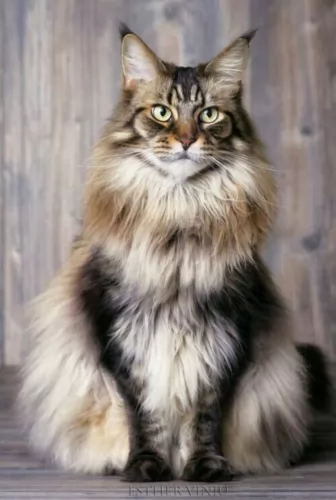 The handsome American Longhair cat is thought to be the result of attempts by breeders to have a cat that portrayed some Persian varieties.
The handsome American Longhair cat is thought to be the result of attempts by breeders to have a cat that portrayed some Persian varieties.
American shorthairs have characteristics and looks from both breeds. The American Longhair, although it comes from champion bloodlines, isn’t actually recognized by larger cat organizations.
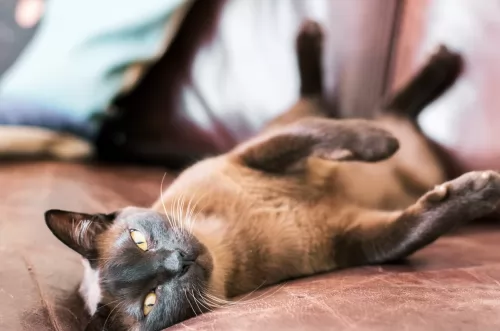 A dark brown cat together with Dr Joseph C. Thompson made their way from Burma to the United States in 1930. Cat fanciers believed that it was a dark-colored Siamese.
A dark brown cat together with Dr Joseph C. Thompson made their way from Burma to the United States in 1930. Cat fanciers believed that it was a dark-colored Siamese.
Dr. Thompson along with other breeders decided to breed the cat and she was the start of the Burmese breed.
Hybrids however, began appearing in the show hall in 1947. This was considered a violation of the show rules of the Cat Fanciers' Association and recognition of the Burmese was withdrawn until 1953. The Burmese Cat Society of America then had to give assurance to the registries that this type of thing would not happen again.
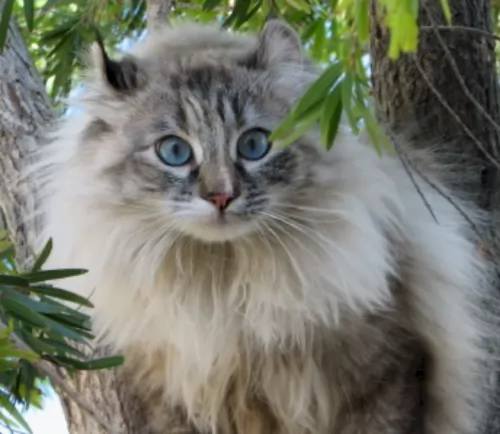 You’ll find that there are quite a few American Longhairs that have the snub nose of the Persian cat which is part of its ancestry.
You’ll find that there are quite a few American Longhairs that have the snub nose of the Persian cat which is part of its ancestry.
This is a well-muscled, medium to large sized athletic cat with a thick double coat of many colors and patterns that sheds fairly heavily.
This isn’t a particularly vocal cat, but in true cat-fashion, it is independent and doesn’t require a lot of attention.
This cat will make a nice companion for older people and it is calm enough to enjoy a leisurely stroll outdoors with a harness on. They’re adaptable to different situations, but the American Longhair isn’t the ideal choice for children as it isn’t your playful, lover of noise and games type of cat, preferring the attention of other animals.
They love going into barns and being buffeted and licked by the cows and other barnyard animals.
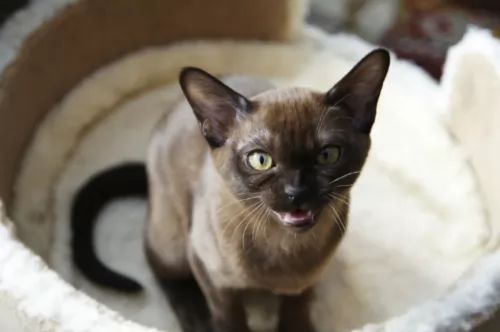 The Burmese is a medium-sized cat - fairly stocky and solid and weighs between 3 and 5kg.
The Burmese is a medium-sized cat - fairly stocky and solid and weighs between 3 and 5kg.
The dense, short coat of the Burmese comes in a variety of colors such as chocolate, cream, sable, red, tortoishell and solid colors too. The color you are most likely to see is sable.
It’s a low shedding cat so his grooming needs are low. The eyes, often a beautiful yellow shade, can be in different shades of yellow really.
Your gorgeous Burmese cat is a curious cat and finds exploring new places a huge adventure. They’re prepared to get on with some other pets in the home, but they may not be happy to welcome all cat breeds. The Burmese don't particularly like sharing their home and his human family with other cats in the home and love to get all the attention for themselves.
Once these cats mature, they do tend to settle down quite a bit and become placid, being a spectator to fun activities rather than a participant.
Still, they love their humans and are more than happy to find a place in the sun and to watch everyone from there.
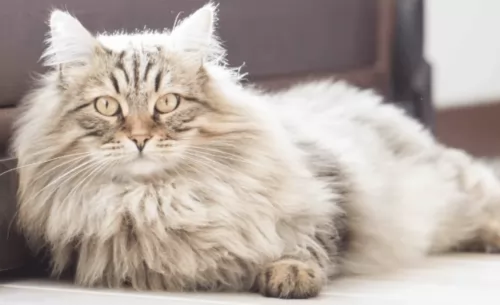 Your American Longhair is an easy-going, friendly social cat that doesn’t demand a lot from his human owners.
Your American Longhair is an easy-going, friendly social cat that doesn’t demand a lot from his human owners.
These cats are intelligent too and you can even teach them a trick or two. They enjoy the company of their humans and will even follow you around.
Bringing one into your home promises to be a rewarding pet-ownership experience.
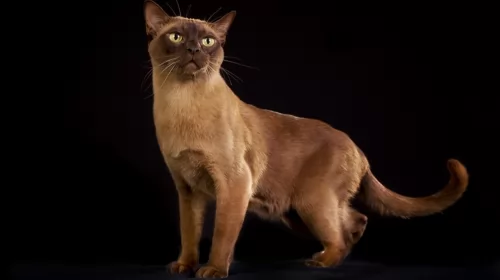 The Burmese cat loves to climb and survey his world from a high perch so don’t forget to invest in some kind of climbing apparatus or cat tree for him.
The Burmese cat loves to climb and survey his world from a high perch so don’t forget to invest in some kind of climbing apparatus or cat tree for him.
He tends to become a bit inactive as he gets older and this can be a problem and lead to obesity. Encourage your Burmese cat to come out and play to make sure he gets enough exercise.
He loves being noticed by his human family and will thrive on being petted and noticed, and of course, you’ll want to, as a Burmese has got a whole love of loving to give you too.
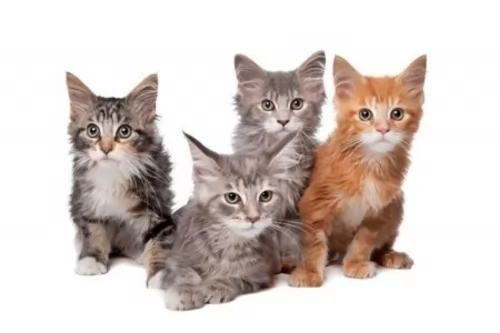 The American Longhair doesn’t have many health concerns and you can expect him to live up to 18, 19 or 20 years of age with good care.
The American Longhair doesn’t have many health concerns and you can expect him to live up to 18, 19 or 20 years of age with good care.
There are some American Longhairs that come with that shortened face of the Persian, and this may mean him battling with breathing problems.
Also, be aware of Polycystic kidney disease where you get cysts that form in the kidneys and which can become larger over time and eventually affect kidney function, leading to kidney failure.
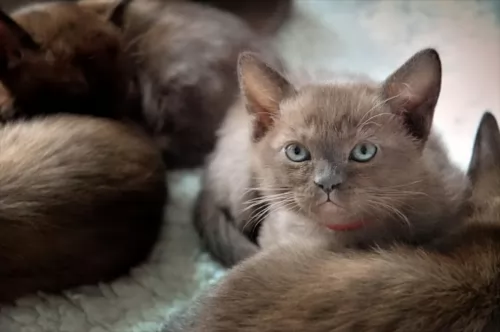 These cats are a healthy breed and if you take good care of your Burmese he can live to up to 13, 14 or 15 years of age.
These cats are a healthy breed and if you take good care of your Burmese he can live to up to 13, 14 or 15 years of age.
But you have to be aware of diabetes mellitus as well as something known as hypokalaemic polymyopathy – muscle weakness because of low blood potassium levels.
You’ve also got to look out for obesity as these are sturdy, stocky cats and overeating can lead to obesity and a host of health issues such as painful joints and diabetes.
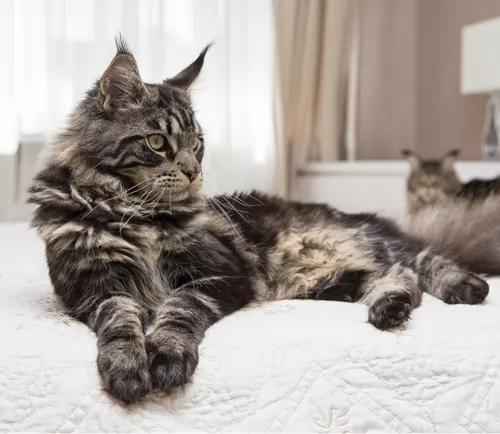 The long coat of the American Longhair will require some brushing to keep it shiny and smooth and free from dust but also to remove all those loose hairs.
The long coat of the American Longhair will require some brushing to keep it shiny and smooth and free from dust but also to remove all those loose hairs.
Make sure your cat’s food and water dishes are in an appropriate spot and keep them separate from your cat’s litter box. House train your cat immediately on how to use a litter box. Keep the litter box clean and rake up your cat's droppings regularly and dispose of them.
Before you get a cat, know that they scratch. It is normal for a cat. Provide your cat with a scratching post as well as climbing equipment such as a cat climbing tree.
Always feed your cat a meat-based diet, after all, cats in the wild are carnivores. There are some ingredients that a cat must have and they require certain amino acids found in meat-based proteins or else they could become ill.
The top quality cat foods provide cats with all the nutrients they need to keep them healthy. There are some cat owners who opt to feed their cats home-prepared meals because then they know exactly what’s going into their beloved pets food.
There are other cat owners who choose to provide their pet with a raw diet because they believe that this comes close to the cat's natural diet in the wild.
Always speak to your vet if you are in any way uncertain about the best foods for your cat. He should always have access to fresh cool water.
Check your cat for problems such as parasites such as ticks and fleas. You will also need to have your cat checked for worms. Your vet can diagnose worms with a physical exam. If it is discovered that your cat does have worms, the vet will recommend some safe, effective medications for your pet.
If you are able to, get your cat regular veterinary examinations to ensure he is always in tip-top condition.
Have your cat spayed or neutered to prevent unwelcome kittens in a world where there are just too many unwanted kittens. These procedures can have health benefits for your cat as well.
American Longhairs are lively playful cats so give your cat toys to play with to ensure mental stimulation.
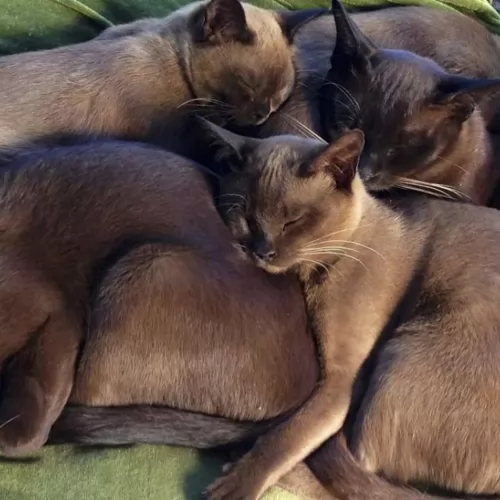 Burmese cats are naturally good climbers and you will need to provide these cats with some kind of climbing tree or something else where they can climb and perch.
Burmese cats are naturally good climbers and you will need to provide these cats with some kind of climbing tree or something else where they can climb and perch.
While adult Burmese cats tend to be fairly placid cats, they still love to play and love the interaction between themselves and their humans. As he gets older, don’t forget to keep up a regular playtime with him.
Shedding is minimal with the Burmese cat and weekly brushing will be a good bonding session and also keep your Burmese cat’s coat healthy and shiny by removing dust and loose hair.
Your fur child requires the best – a balanced cat food packed with protein to support him in all his activities and to ensure he maintains a good weight.
There are many excellent commercially manufactured cat foods on the market so learn to understand the ingredients and what nutrients are required.
Certainly, your Burmese kitten will require a complete and balanced kitten food with all the right nutrients to ensure good bone and coat growth. Then it is time to choose a kitten food which will later change to adult food as your kitten matures.
There are excellent cat foods for every stage and season of your cat’s life and from top brands – people who know the needs of cats.